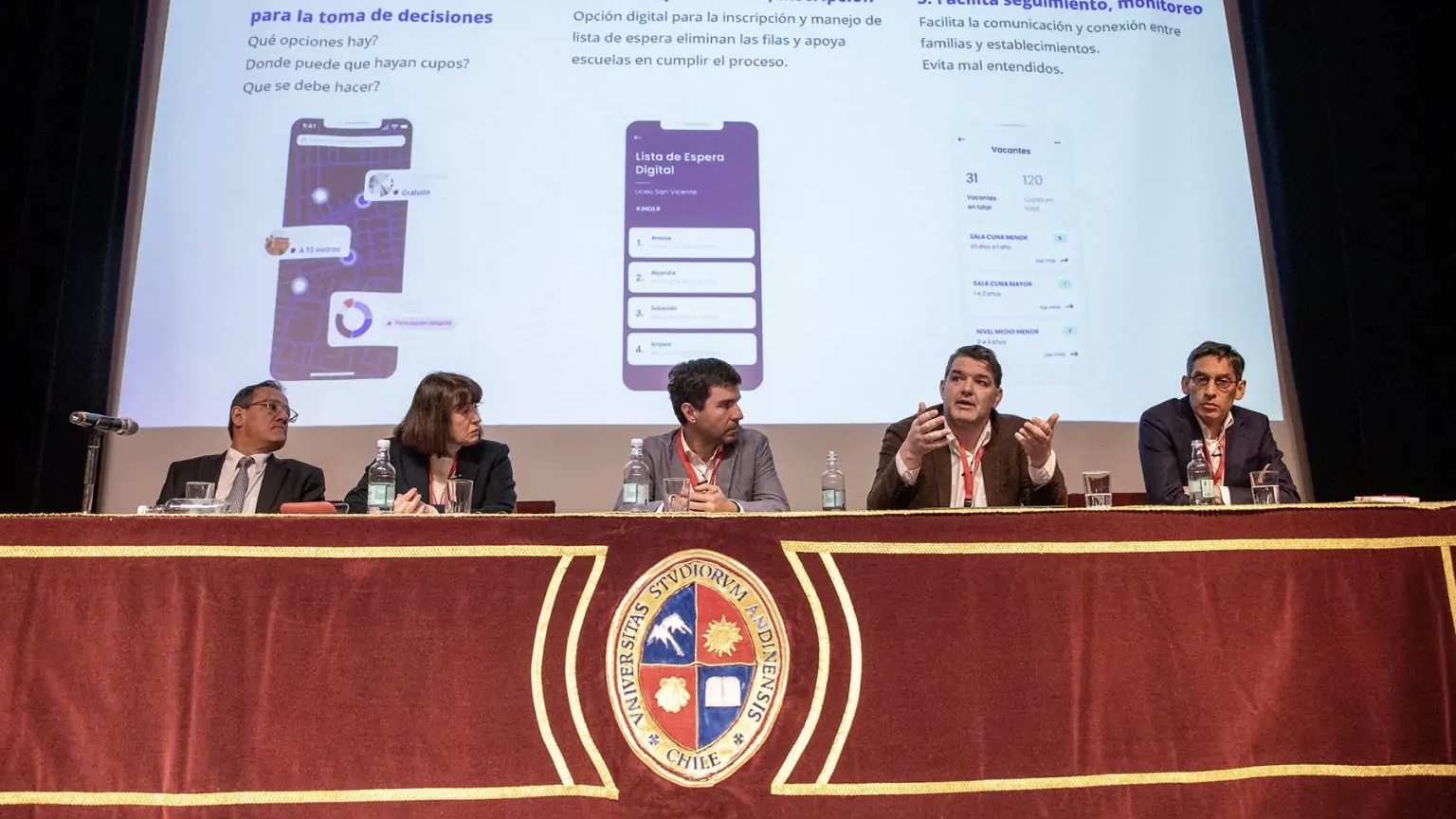
The Human Development Lab organized the policy panel “Competition in Education: Challenges and Opportunities,” featuring education experts who shared their insights and experiences on the challenges and opportunities presented by competition in the educational field. The panel included Miguel Urquiola, Dean of Social Sciences at Columbia University; Harald Beyer, former Minister of Education and Professor at the School of Government at the Universidad Católica; Alejandra Mizala, Pro-Rector of the Universidad de Chile; and Christopher Neilson, Professor of Economics and Global Affairs at Yale University. The panel was moderated by Andrés Barrios, researcher at the Faculty of Economic and Business Sciences and director of the Human Development Lab at UANDES.
In his welcome speech, José Antonio Guzmán, President of our University, emphasized the importance of fostering dialogue: “The Human Development Lab is a project highly valued by the university. The entire team has devoted considerable time to seriously thinking about educational policy and how, through it, we can improve the country.”
The panelists discussed the opportunities and challenges of fostering competition between educational institutions at different levels and in different settings. Harald Beyer gave an overview of the role that the private sector has played in the Chilean educational system since its origins. Alejandra Mizala discussed some of the risks of just relying on the market to ensure an equal access to educational opportunities and highlighted the need of regulating some aspects of the educational system. Christopher Neilson presented some recent evidence on how competition incentives introduced by the SEP Reform in Chile improved quality in the public sector and then discussed the potential of new technologies to remove search frictions and reduce transaction costs in the context of school choice. Finally, Miguel Urquiola gave an overview of the literature on competition on educational systems at different levels and discussed some examples in which it worked well—e.g., research universities in the US—and some challenges that it generated in other settings—e.g., inequality and segregation in the K12 school system.